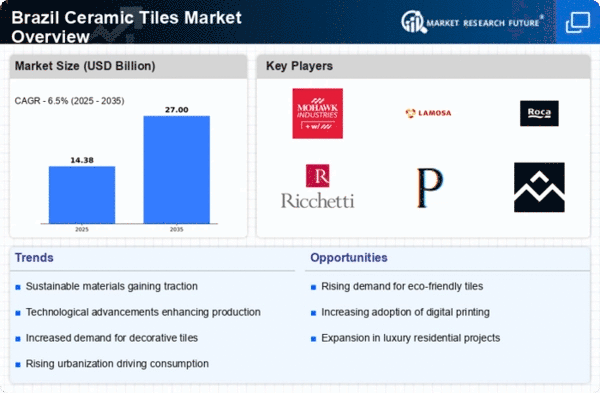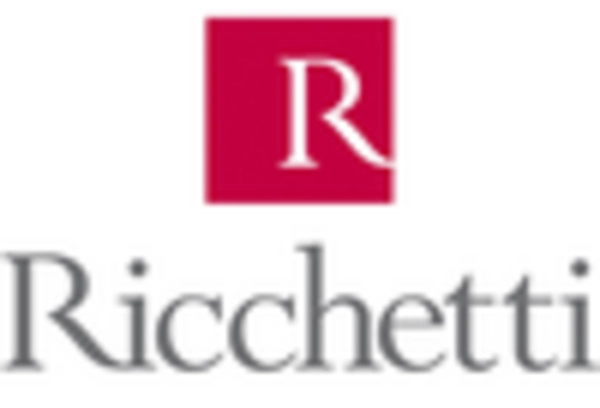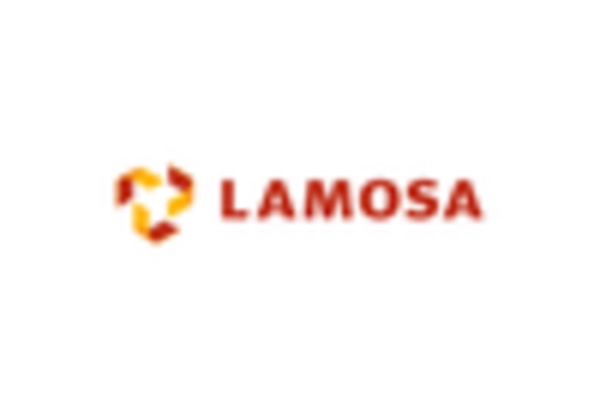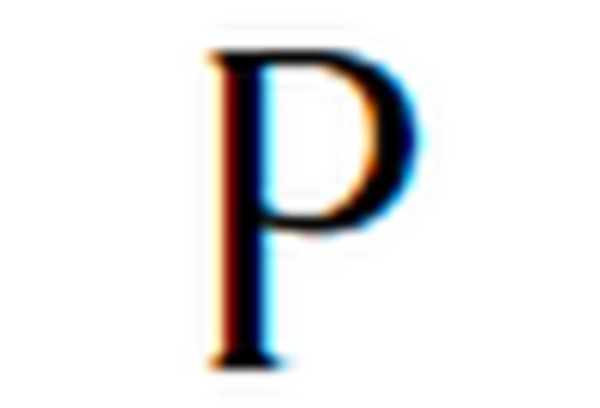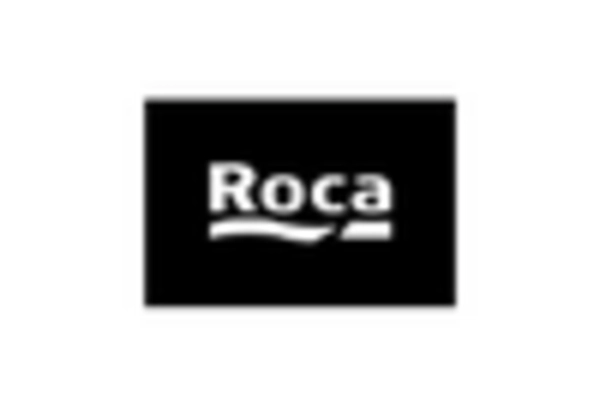Rising Urbanization
The ongoing trend of urbanization in Brazil appears to be a significant driver for the ceramic tiles market. As more individuals migrate to urban areas, the demand for residential and commercial properties increases. This urban expansion necessitates the use of ceramic tiles for flooring and wall applications, as they are favored for their durability and aesthetic appeal. In 2025, the urban population in Brazil is projected to reach approximately 87% of the total population, which could lead to a substantial increase in construction activities. Consequently, the ceramic tiles market is likely to experience growth, as builders and homeowners seek high-quality materials to enhance their living and working spaces.
Sustainability Initiatives
Sustainability initiatives are becoming increasingly relevant in Brazil, impacting the ceramic tiles market. Consumers are more inclined to choose eco-friendly products, prompting manufacturers to adopt sustainable practices in tile production. This includes the use of recycled materials and energy-efficient manufacturing processes. In 2025, it is anticipated that the demand for sustainable ceramic tiles could rise by 25%, as environmentally conscious consumers seek products that align with their values. This shift not only benefits the environment but also enhances the market appeal of ceramic tiles, as companies that prioritize sustainability may gain a competitive edge in the industry.
Growing Construction Sector
The construction sector in Brazil is currently witnessing robust growth, which is likely to bolster the ceramic tiles market. With government initiatives aimed at infrastructure development and housing projects, the demand for ceramic tiles is expected to rise. In 2025, the construction industry is projected to contribute around 6% to Brazil's GDP, indicating a healthy environment for ceramic tile manufacturers. This growth is driven by both public and private investments in residential, commercial, and industrial projects. As a result, the ceramic tiles market is positioned to benefit from increased demand for stylish and functional flooring solutions that meet the needs of modern construction.
Consumer Preference for Aesthetics
In Brazil, there is a noticeable shift in consumer preferences towards aesthetically pleasing home interiors, which is influencing the ceramic tiles market. Homeowners are increasingly opting for ceramic tiles that offer a variety of designs, colors, and textures to enhance their living spaces. This trend is particularly evident in urban areas, where the desire for stylish and contemporary home decor is on the rise. The ceramic tiles market is responding to this demand by introducing innovative designs and finishes. As of 2025, it is estimated that the decorative ceramic tiles segment could account for over 30% of total sales, reflecting the growing importance of aesthetics in consumer purchasing decisions.
Technological Innovations in Production
Technological innovations in production processes are playing a crucial role in shaping the ceramic tiles market in Brazil. Advances in manufacturing technology, such as digital printing and automated production lines, enable manufacturers to produce high-quality tiles with intricate designs and improved durability. These innovations not only enhance the aesthetic appeal of ceramic tiles but also reduce production costs and time. As of 2025, it is expected that the adoption of advanced technologies could lead to a 15% increase in production efficiency within the ceramic tiles market. This efficiency may allow manufacturers to meet the growing demand while maintaining competitive pricing.


